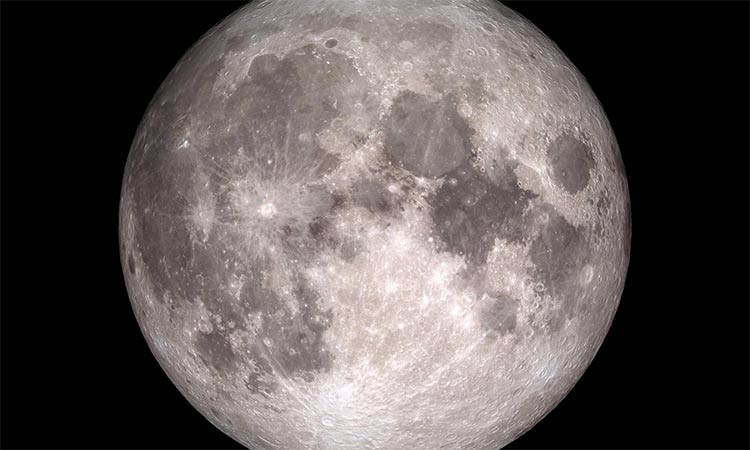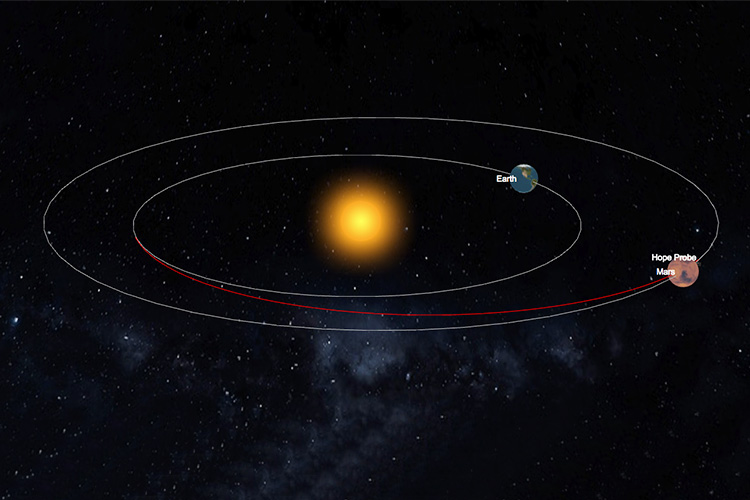DhabiSat marks another major milestone for UAE

The launch of DhabiSat marks another milestone event for the UAE. WAM
Khalifa University of Science and Technology, Al Yah Satellite Company (Yahsat) and Northrop Grumman announced ‘DhabiSat’ lifted off aboard the Cygnus NG-15 spacecraft on the Antares rocket to the International Space Station (ISS) from the Wallops Flight Facility in Virginia, US.
The launch of DhabiSat marks another milestone event for the UAE, the Khalifa University community, and for collaboration partners Yahsat and Northrop Grumman. DhabiSat will be deployed from the resupply spacecraft Cygnus NG-15, following its departure from the ISS in approximately three months.
Developed by 27 graduate students at Yahsat Space Lab, which is part of the Khalifa University Space Technology and Innovation Centre (KUSTIC), the DhabiSat project is helping to train a new cadre of youth to become qualified engineers to support the growing space sector in the UAE.
Once deployed, DhabiSat will enable students to test custom software modules, developed in-house by the students, for the Attitude Determination and Control Subsystem (ADCS). The high resolution camera on DhabiSat can capture images from an altitude of 450km.
The launch is another laurel for the university and its partners, marking a major milestone for the UAE’s space sector that will have locally-qualified, and trained manpower equipped by academic institutions within the country. Dr Arif Sultan Al Hammadi, Executive Vice-President, Khalifa University of Science and Technology, said: “This CubeSat was entirely designed and developed by students with support from our partners, and demonstrates another example of Khalifa University’s overarching strategy to develop space scientists and engineers who will take the UAE forward in terms of technological progress. “
Muna Almheiri, Chief Human Capital Officer of Yahsat, said: “On behalf of Yahsat, I would like to congratulate the team of students and other stakeholders on this outstanding achievement. DhabiSat is a worthy successor of MYSat-1, the first educational mission conceived and launched by Yahsat Space Lab three years ago. Since its inception, the lab has championed industry-academic collaboration, facilitating knowledge and resource transfer to hone latent talent within the country.”
Khalifa University’s first CubeSat MYSat-1, conceptualised, designed, integrated, tested and operated as part of the Master’s Concentration in Space Systems and Technologies programme, was deployed in February 2019.
KUSTIC continues to play a significant role in the development and deployment of satellites, supporting other universities. These include the MeznSat project, developed by students from Khalifa University and the American University of Ras Al Khaimah, and the Light-1 CubeSat being developed at Khalifa University.
The Yahsat Space Lab within KUSTIC is the first of its kind in the region with the capability to design, build and test small satellites.
Since the early developments in the field of space science, there were always six powers who dominated; namely the US, Europe, China, Japan, Russia and India. Now one more country can be added to the list: UAE.
The UAE’s recent advancements are simply amazing.
There are many Emiratis who have studied the field, both inside the UAE and abroad. These students no longer need to travel abroad to study space science, as the UAE has made the specialisation available in the country.
These feats are truly a matter of pride and honour for the nation, which is fairly young.







